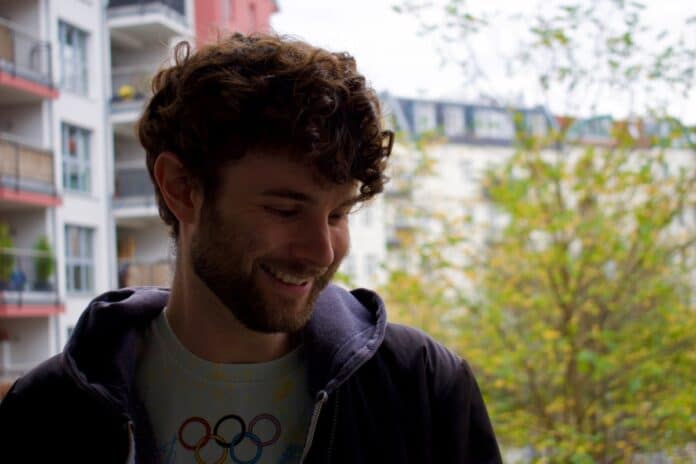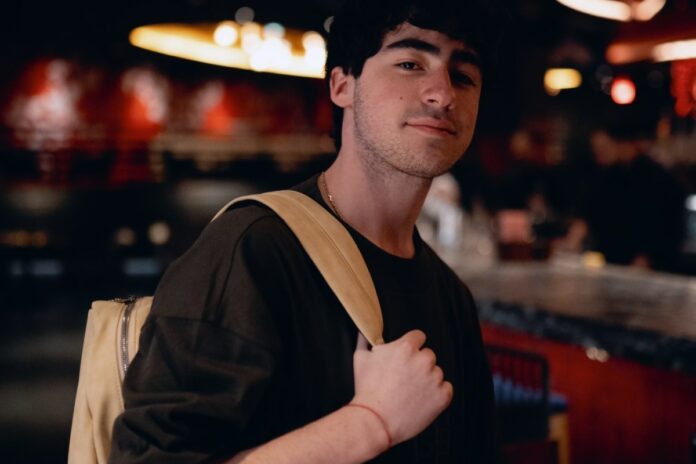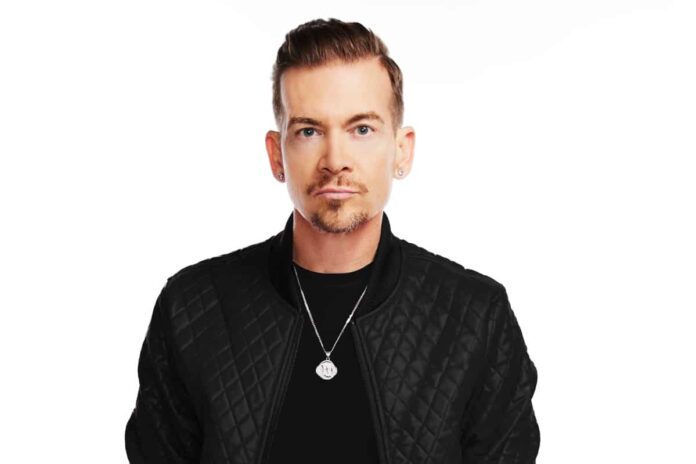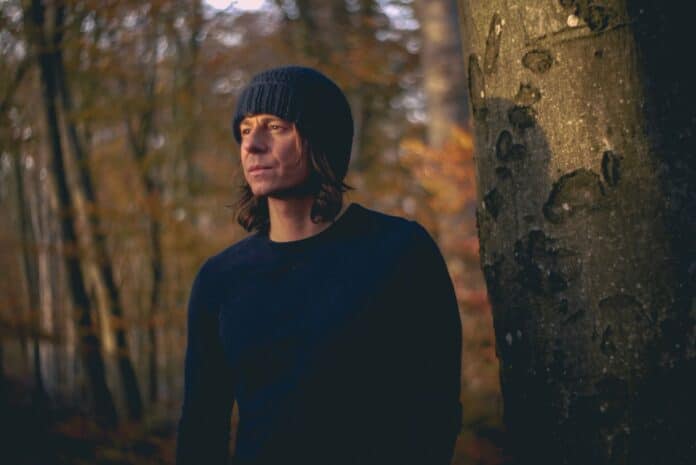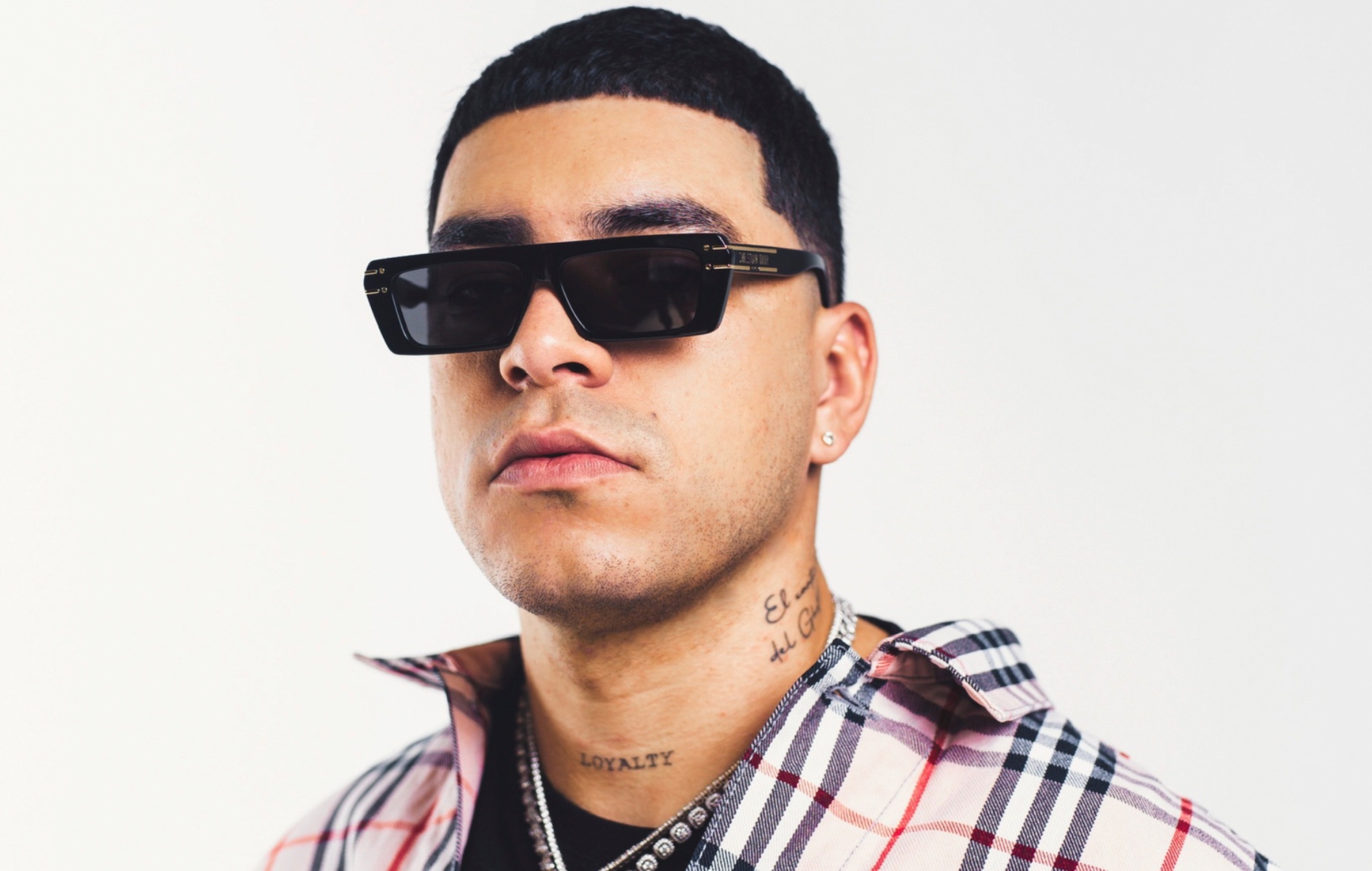
Ryan Castro: globetrotting superstar on a mission to “bring reggaetón back to its roots”
Ryan Castro is going global. We catch the Colombian rising star during the European leg of his summer tour: today he’s in Italy, but by the time you read this he’ll be criss-crossing North America. In mid-July, he smashed a UK headline show at Electric Brixton. “It was unbelievable – like, it was sold out,” Castro says today with palpable passion. “And there were so many Latinos there: Colombians, Ecuadorians, Peruvians, Mexicans. Everyone was so welcoming.”
Castro’s south London gig was hosted by the huge I Love Reggaeton club night, a celebration of Latin dance culture that has been packing venues across the UK since 2017. It was a perfect booking for 28-year-old Castro because he also really, really loves reggaetón. In fact, he’s named his dazzling debut EP ‘REGGAETONEA’ in honour of the highly danceable, hip-hop-infused genre that sprung up from the underground in Panama and Puerto Rico in the 1980s.
Over the last decade especially, reggaetón has exploded in popularity around the world thanks to superstars like Colombia’s J Balvin and Puerto Rico’s Daddy Yankee and Bad Bunny. Castro has recently teamed up with Balvin for the summer club banger ‘Nivel De Perreo’. “We are both kids from Medellín, and every time I get to work with someone who shares my roots and my passion for music, it’s a great gift,” Balvin said when the track dropped last month.
‘Nivel De Perreo’ doesn’t appear on ‘REGGAETONEA’, but the seven-track EP does include the hit single ‘Mujeriego’, a fresh blend of merengue and reggaetón that blew up on TikTok – it’s now a whisker away from hitting 150 million Spotify streams. ‘REGGAETONEA’ also includes sultrier moments like new focus track ‘Amor De Una Noche’, an ominous bop that seems to capture the dark side of a one-night stand.
Speaking to NME on Zoom, it’s impossible to miss the steely focus Castro has used to build a growing fanbase that now includes 2.3 million Instagram followers. Earlier in his career, he used his charisma to charm commuters when he was singing on buses and at bus stops in Pedregal, a humble neighbourhood in northern Medellín that he refers to as “the ghetto”. During this period, he picked up the nickname “cantante del ghetto” – singer from the ghetto – and he’s proud to have kept it as his profile has exploded.
Medellín has reinvented itself in recent years as a go-to destination for music and clubbing. In May, Castro cemented his place at the heart of the thriving Colombian scene by opening for reggaetón queen Karol G when she played to 40,000 fans in the country’s third largest city, Cali. Castro hails G – a fellow Medellín success story he very much looks up to – as “an overall superstar”.
“It’s a dream come true,” Castro says of his own swelling reputation. “I can’t believe how quickly my music has transcended and taken me all over the world.” Still, as we find out in this wide-ranging interview, this super-focused artist has his eye on a higher prize – namely, global role model status.
NME: What is your main aim with the ‘REGGAETONEA’ EP?
“I think to bring back the classic reggaetón that everyone fell in love with: the language, the clothes, the culture, everything that’s going on in the barrios in Colombia. My main intention is to take everything that everyone fell in love with [about reggaetón] and really bring it into the new era.”
As reggaetón has become super-popular all over the world, do you feel as though it has strayed from its roots in some way?
“I don’t feel like it’s lost its essence. But as time has gone on, it has become more pop. And so what I want to do with this EP is bring it back to more hip-hop and rap [sounds], where it came from. There’s all kinds of reggaetón – and I also do like the more romantic and pop kinds – but my intention with ‘REGGAETONEA’ is to bring it back to its roots.”
When did you first realise that music was your calling?
“It started when I was in school and maybe about 14 or 15. I was always interested in the arts: I loved dancing and singing, and I used to watch a lot of American films that were based on rap and hip-hop culture. But when I found reggaetón, I really connected to it because it was my language and my culture. I just knew it was what I wanted to do.”
You’ve said in the past that you were inspired by Eminem and 50 Cent’s movies 8 Mile and Get Rich Or Die Tryin’. What about them resonated with you?
“The biggest thing was the storytelling. They [Eminem and 50 Cent] were so passionate about what they were doing and they were so passionate about the music. They all had struggles – you know, struggles at home and in the streets where they lived – and I related to that because that’s what I was seeing in my everyday life in Colombia. But I also related to the way they were trying to better themselves through their passion, which was music.”

How did you pick up the nickname ‘cantante del ghetto’?
“Where I came from, the neighbourhood I was growing up in, we called it ‘the ghetto’. My crew and other people in the same neighbourhood were involved in a lot of different cultural activities, so there was one [guy] who became, like, the barber of the ghetto and I became the singer of the ghetto. We were all trying to better ourselves and bring other people into our cultural activities. We wanted to show younger people that you can do better in life by setting the right example.”
Earlier in your career, you sang on buses and at bus stops. How did you grab people’s attention when they were trying to keep their head down on the daily commute?
“I just tried to use as much of my charisma as possible. Sometimes I would even try to be funny and tell a joke to grab people’s attention. And then once I had their attention, I would start singing a song and really perform for them. You know, the most important thing for me at that time was to share my talents in any way I could.”
“When I found reggaetón, I really connected to it because it was my language and my culture”
Ever since then, your career trajectory has very much been heading skywards. But when did you first realise that maybe you were going to “make it”?
“I think the ball dropped about three or four years ago. That’s when I started making money out of it and playing shows outside my own city. Like, I started touring North America at that point. That’s when I said, ‘OK, this is serious, and I need to pay attention to the feedback I’m getting and pay attention to where I’m going next.’ I’m still very surprised by the way it blew up.”
What’s the ultimate aim – to become a global superstar?
“100%, but I want to be more than just a superstar. I want to be recognised as a true artist through my music. I want to make people dance and I want to take my culture, Colombian culture, all over the world. I want to be an example for all young people everywhere by showing them the power of music and artistry.”
Ryan Castro’s ‘REGGAETONEA’ EP is out now

